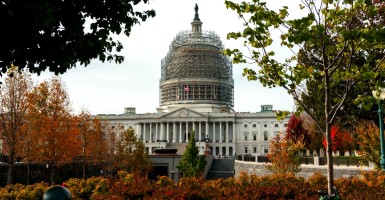The annual ritual is upon us. Congress is busy at work crafting a bill to extend the approximately 50 tax-reducing policies that expire each year, popularly known as the tax extenders. If reports about the impending package are accurate, the bill will fall short of achieving meaningful policy improvements.
The tax extenders expired at the end of 2014, so they are currently lapsed. The package is a mishmash of policies necessary to maintain tax neutrality and others that are not sound policy.
Ideally, Congress would go through each of the individual policies in the group, make those that are good policy permanent, and eliminate those that are not in a revenue-neutral manner. Congress has never fully followed this approach. However, the House Ways and Means Committee did pass bills this year that made some important policies like section 179 expensing for small businesses, the research and development (R&D) credit, and bonus depreciation (better called 50 percent expensing) permanent. The House later passed section 179 expensing and the research and development credit.
Now that Congress is putting together a broad package, there are rumors it could include making those policies, except 50 percent expensing, permanent. It would also make the expansion of the refundability of the child tax credit (CTC), the earned income tax credit (EITC), and the American opportunity credit (AOC) permanent. Those policies were part of the 2009 stimulus and are set to expire in 2018.
Reportedly, the bill could also phase out special interest provisions like the wind production tax credit over 5 years. Fifty percent expensing would also receive such a phase-out. And there is a possibility it will delay implementation of Obamacare’s Cadillac tax on high-cost health insurance plans by 2 years, even though the tax doesn’t go into effect until 2018.
The lack of permanence for 50 percent expensing in the would-be package is a major flaw. Fifty percent expensing is strongly pro-growth because it undoes by half the damage depreciation schedules inflict on investment. It gets the tax code halfway to the proper policy of full expensing. It has been in place since the stimulus, and it should remain in place permanently.
Phasing out 50 percent expensing over 5 years is misguided because it puts it on the same glide path as special interest policies like the wind production tax credit, and hence draws a loose equivalence between them. But 50 percent expensing is a big step in the direction of proper policy, and it is available to all businesses. It should never be confused with a special interest policy that deserves immediate and complete elimination.
The absence of permanence for 50 percent expensing is made more painful by making the expansion of the child tax credit, the earned income tax credit, and the American opportunity credit from the stimulus permanent.
These polices are largely spending, since they expand what taxpayers can receive back above what they pay in taxes. The Congressional Budget Office estimates that their permanence increases spending by more than $158 billion over 10 years, which is more than 44 percent of their entire cost.
Further complicating the package is the delay of the Cadillac tax. The tax is not a good policy, but it can be used as a pivot to the right policy of capping the exclusion for employer-provided health insurance and providing a credit for individuals to buy insurance on the open market.
Rather than delay the tax, Congress should be focused on making this long overdue step in a revenue-neutral way.
Setting a cap on the amount of health insurance that can be purchased on a pretax basis would be consistent with the existing caps on pre-tax funding of other employee benefits such as life insurance, retirement accounts, and dependent care accounts. Like those other caps, but unlike the Cadillac tax, a cap on the tax exclusion for employer provided insurance would not force employers to alter their plans.
There is still time for Congress to forge a better bill. The biggest step it can take in that direction is to make 50 percent expensing permanent.
Congress should not include any extension of the 2009 refundable tax credits in the extenders bill. In fact, Congress should include no provisions that increase spending without fully offsetting them. This Congress has already added more than $140 billion to the 10-year deficit.





























